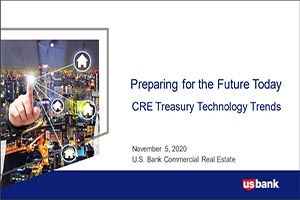
Manufacturing: 6 supply chain optimization strategies

What is CSDR, and how will you be affected?

Document custodians go by many names – warehouse custodians, agency custodians, preferred custodians – but their function is the same. They hold the documents that evidence underlying collateral for various financing and structured transactions. Documents are held, for example, for private securitizations, agency mortgage-backed purchase programs or mortgage repurchase obligations.
More issuers, servicers and warehouse lenders are recognizing the benefits, for all parties involved, of partnering with a custodian that offers a comprehensive document custodial service profile:
We’ll explore these and other advantages in greater detail below.
Talk to almost anyone in the warehouse lending field who uses a full-service custodian. They’ll likely tell you they consider that engagement one of their most valuable business relationships. This is because comprehensive custody provides a broad range of benefits.
Risk mitigation: Collateral ownership will often transition during the presecuritization life cycle. Mortgage loans can transfer from correspondents to lenders; between wet and dry facilities (mortgage loans funded at closing are wet – they become dry once the collateral documents are received by the custodian); and from lenders to a gestation repo line prior to the investor’s purchase. Each time collateral documents change hands creates a potential risk for document loss or damage. Having the same custodian during the warehouse phase through final sale streamlines the collateral transition and provides greater control. A good custodian will have systems and protocols in place to protect the documents in custody while accurately reflecting ownership throughout the life cycle of the collateral.
Cycle time reduction: Many consider pipeline liquidity a critical component of a healthy warehouse facility. Using a full-service, “one-stop-shop” custodian for both the warehouse period and takeout review (for agency cash and mortgage-backed securities) will reduce the cycle time. Ideally, the custodian will perform a single document review that accommodates all requirements at once. This eliminates exception surprises at the time of sale due to different requirements delaying purchase for exception cures.
Potential cost reduction: Cost savings may also be realized by using the same custodian. The one-stop custodian will, in most cases, need to physically review a file only once. They would then be able to use data comparisons to perform subsequent reviews as the collateral transitions from purchase to sale.
Process efficiency: Having a custodian that is both your warehouse and agency provider may streamline other events, such as resales related to early buy-outs and transfers between warehouse facilities.
Taking on additional roles: Your custodian can serve as a disbursement agent by facilitating timely wires to closing tables. They can also serve as a securities and settlement intermediary by accepting bonds and cash payments for repayment back to the facility.
A custodial partnership should be based on mutual success, and all parties should understand each other’s goals. This helps improve responsiveness and flexibility within an ever-changing market. The more touchpoints you have with your custodian, the better they can support your strategic direction.
The more touchpoints you have with your custodian, the better they can support your strategic direction.
A custodian aligned with your vision can recommend process enhancements that support it. Innovation might be as simple as a file format change. Or it could be as transformational as using both current and future technology to improve efficiency for better and faster service delivery.
The best custodians focus on your long-term objectives while delivering outstanding day-to-day service. They have controls in place to safeguard collateral and manage other risk factors associated with collateral custody and processing. They’ll have vetted and put in place practical, realistic business continuity plans. And they’ll be better able to keep business moving during disruptive events, both local and national.
Your custodian should also have strong governance with senior-level managers who are committed to the success of the custodian’s business and partners. They should have the financial vigor and enterprise infrastructure to react to any change – economic, market, regulatory or whatever else.
Choosing a document custodian should happen early in the transactional process. Engaging a custodian is an important part of your transaction, and the sooner the engagement, the more your custodian can help you develop your expectations for deal success. Obviously, it is priority for a lender, issuer or seller to organize financing, obtain agency approvals and build a systematic platform to execute the business, but your custodial decision should never be an afterthought.
Competitive pricing is important; however, other costs can sometimes hide below the surface if the custodian is transaction-focused rather than relationship-focused. During the consideration process, you should ask detailed questions about workflow to uncover what your actual transaction costs will be end-to-end. Speak to individuals from both the relationship side and operations side of the business. This will help you thoroughly assess their knowledge, competence and passion.
It’s also wise to incorporate a site visit into your due-diligence process. Be sure to ask if the custodian will deliver on the following:
Most importantly, understand what you’re getting, and make sure you have access to what you’ll need in the future. Cost considerations are important, but service, trust and experience are equally critical. By evaluating your needs and finding the custodian that best aligns with them, you can create a deeper relationship with numerous short- and long-term benefits.
Learn more about our document custody solutions and the services we offer.
Related content


